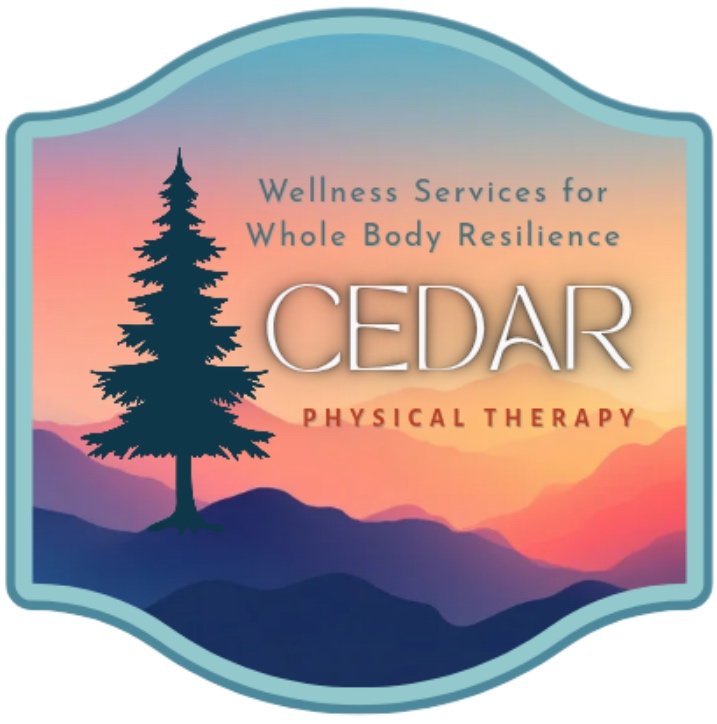I specialize in treating the following patient populations:
People of color
LGBTQ+
First Responders (police, deputies, state troopers, fire fighters, 911 operators & dispatchers, EMTs, paramedics)
Military
Survivors of sexual trauma and abuse
High performance athletes
People experiencing symptoms of anxiety, depression and/or post-traumatic stress injuries (commonly called PTSD)
Why am I motivated to serve these patient populations?
I am a Black *cisgendered bisexual woman. I am a former Division I soccer athlete. I have personal and family ties to the First responder and military communities. These layers of my personal identity, and the experiences that have come with them, inspire me to offer high-quality and culturally responsive care to the above noted patient populations who are far too often mistreated within the health care system.
I believe we heal better when we feel seen, safe, heard and respected by our health care providers. In my personal life, I seek out health care providers who are culturally responsive to the layers of my identity and my lived experiences. I strive to offer the same culturally responsive care to my patients — and I strive to tackle systemic health disparities head on through direct patient care and as an active community member.
*For those who might not know, cisgendered means I look like/identify as the gender I was assigned at birth (female).
I don’t treat conditions. I treat people.
Are you experiencing any of the following symptoms?
-
We all experience pain differently. One thing most people with chronic pain have in common is that it negatively impacts their quality of life. I enjoy supporting patients as they learn to better understand their body’s pain signals better.
I offer several nervous system regulation techniques to help you manage you pain, including but not limited to:
breath work
visualization training
guided meditation
gentle myofascial release and trigger point therapy
reiki
-
Pain from the base of our shoulders to the bottom of our skull. Often creates difficulty with turning our head, looking up/down, working, reading, driving, cooking, completing house hold chores etc…
Does your neck pain get worse with stress? Let’s talk about it.
-
Has your low back ever “gone out?” Mine too! It was so scary the first time it happened. Our backs are very resilient, but sometimes we experience intense pain that makes us question that.
It can be very empowering to learn exercises and techniques to optimize how we manage low back pain.
I strive to help patients decrease their low back pain as well as decrease fear of re-injuring their low back.
-
Having had 3 knee surgeries myself while playing Division I college soccer, I am very familiar with healing minor and severe knee injuries. I love supporting patients as they recovery from sports injuries (post-operative and non-operative) and return to playing without fear.
I also offer injury prevention screenings, plyometric training programs, and soccer-specific knee exercises.
-
While it is common to leak urine when we sneeze, laugh, jump, run, or lift heavy things, this doesn’t mean you have to live with urine leakage for the rest of your life. Pelvic Health Physical Therapy is a great treatment option for resolving urinary incontinence.
-
Does your bladder feel full right after you just went? Do you have the urge to go pee every 30 minutes? Do you feel nervous going out in public because you might not have access to a bathroom?
Pelvic Health Physical Therapy can help treat and manage overactive bladder symptoms.
-
If you go pee more than 0-1x/night, you may have nocturia. Decreasing how often you go pee to be 0 or 1x/night can improve your quality of sleep, quality of rest and recovery, mental health and quality of life. It can also decrease your risk of falls!
-
Feeling like your bladder is still full right after you just went pee is not fun. Poop didn’t come out all the way either? Pelvic Health Physical Therapy can help with these symptoms.
-
Different people experience constipation differently. About 16% of people experience it in some way. If you are having difficulty pooping, feeling abdominal pain related to not pooping, experiencing hard or painful stools, consider reaching out to a pelvic health physical therapist.
-
Are you experiencing pain with initial penetration? Pain with medical pelvic exams? Pain with insertion of tampons or menstrual cups?
What about pain with vaginal penetration of a finger, penis, or vibrator? Soreness after sex? Fear of sex because of pain?
Pelvic Health Physical Therapy may be a good option for you.
-
If you have never experienced an orgasm or if they feel very hard to achieve, you are not alone. Pelvic floor muscles that are too tight or too weak can make it hard to achieve orgasms. Because of this, pelvic Health Physical Therapy is one of many treatment options for this that may be beneficial.
-
Vaginisumus is a painful pelvic floor condition in which the saddle area muscles spasm with attempted vaginal penetration. This can occur during sexual intimacy/intercourse. It can also be experienced as difficulty or inability to tolerate a pelvic medical exam (papsmere)…or insertion of menstrual products into the vaginal canal (tampons or mensural cups).
-
Pelvic Organ Prolapse is increased movement on your pelvic organs and the related tissue. It often feels like heaviness in your pelvic floor. You may feel a sensation as if there is a tampon inside your vaginal canal when you know there isn’t. Can also feel as if something is “falling out.”
Treatment options for this commonly include education, optimization of lifestyle habits, and pelvic health physical therapy exercises.
Some cases require referral out to another provider for a pessary fitting or surgical consultation. I help my patients navigate these treatment options and pick the treatment path that feels right to you.
-
Hormonal changes, weight changes, and changes in the laxity of our tissues can contribute to round ligament pain, pubic bone pain, low back pain, hip and knee pain during pregnancy.
Pelvic Health Physical Therapy can also help people prepare for birth, labor, and post-partum.
-
Most hospitals require that patients undergoing a major abdominal surgery receive physical therapy before leaving the hospital. People who receive a hysterectomy or undergo a cesarean birth, are less often offered this service without requesting it. This speaks to a large health disparity within our country.
I recommend that everyone who undergoes an abdominal surgery for endometriosis, adenomyosis, PCOS, uterus or ovary removal…or anyone who experiences a cesarean birth, receive pelvic health physical therapy to support optimal recovery.
-
People experience abdominal pain for all types of reasons…constipation, endometriosis, PCOS, adenomyosis, or period related pain. I offer organ specific fascial releases, bladder and bowel habit education, and breath training, among other modalities for management of abdominal pain. I commonly work with people living with endometriosis, adenomyosis, and PCOS.
-
Pain in the jaw region. Commonly associated with neck pain, headaches and/or shoulder pain and pelvic floor dysfunction. Often linked to stress.
Can present as pain/difficulty with: opening jaw, closing jaw, chewing, talking, participating in oral sex.
Did you know jaw pain is commonly associated with pelvic pain? When we clench our jaw, or pelvic floor often clenches too and vice versa! Let’s talk about it more in session.

